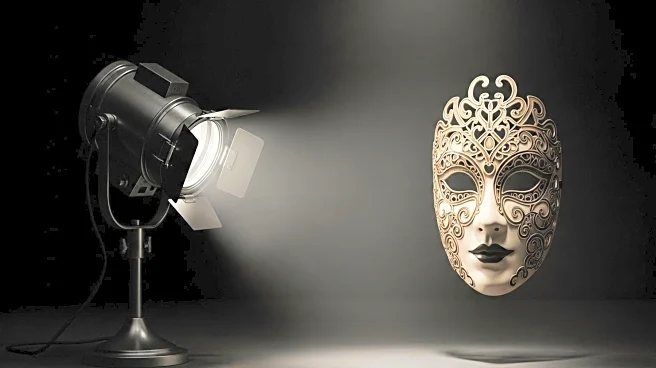What's Happening?
Pietro Marcello's film 'Duse' offers a cinematic portrayal of Eleonora Duse, a prominent figure in Italian theater during the late 19th and early 20th centuries. The film, starring Valeria Bruni Tedeschi, delves into Duse's life beyond the stage, capturing her intense naturalism and personal struggles. Known for her roles in plays by Ibsen and Gabriele D'Annunzio, Duse's legacy is explored through a narrative set after her peak performance years. The film highlights her interactions with historical figures and her return to the stage amidst personal and financial challenges.
Why It's Important?
The film 'Duse' seeks to revive interest in Eleonora Duse, whose influence on theater has been overshadowed by contemporaries like Sarah Bernhardt. By focusing on her later years, the film attempts to highlight the enduring impact of her work and her personal resilience. This portrayal may influence current perceptions of historical female figures in the arts, emphasizing the importance of recognizing their contributions. The film also reflects on the cultural and historical context of Italy during Duse's time, offering insights into the societal roles and challenges faced by women in the arts.
What's Next?
The release of 'Duse' may spark renewed interest in Eleonora Duse's work and legacy, potentially leading to further explorations of her life in other media. The film could inspire discussions on the representation of historical figures in cinema and the importance of preserving cultural heritage. Additionally, it may encourage a re-evaluation of Duse's contributions to theater and her influence on modern acting techniques.
Beyond the Headlines
The film's focus on Duse's later life raises questions about the portrayal of aging artists and the challenges they face. It also touches on themes of fame, legacy, and the personal sacrifices made by those in the public eye. The narrative's intersection with historical events, such as World War I and interactions with figures like Mussolini, adds layers of complexity to Duse's story, highlighting the interplay between personal and political histories.









